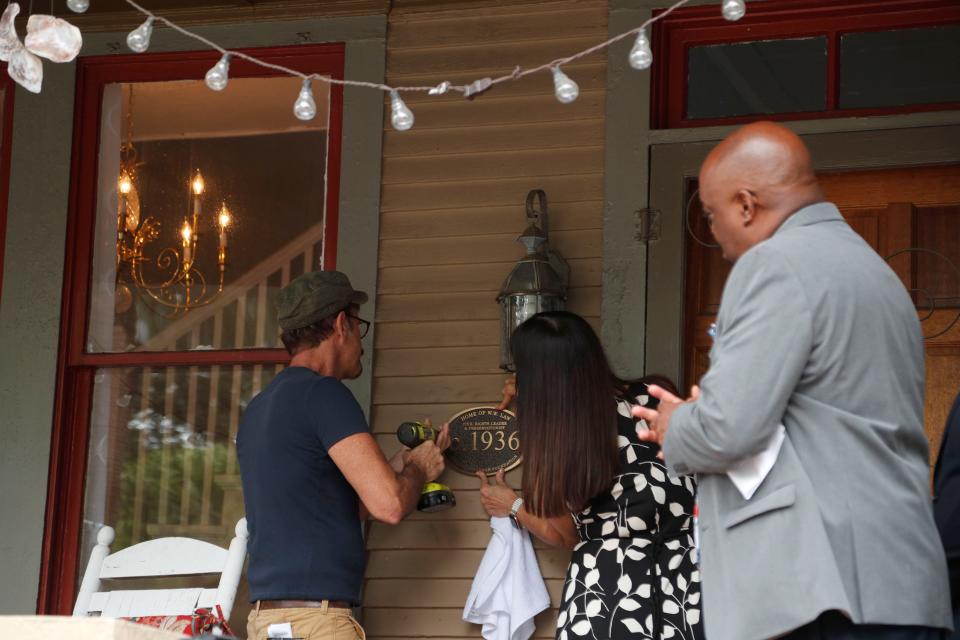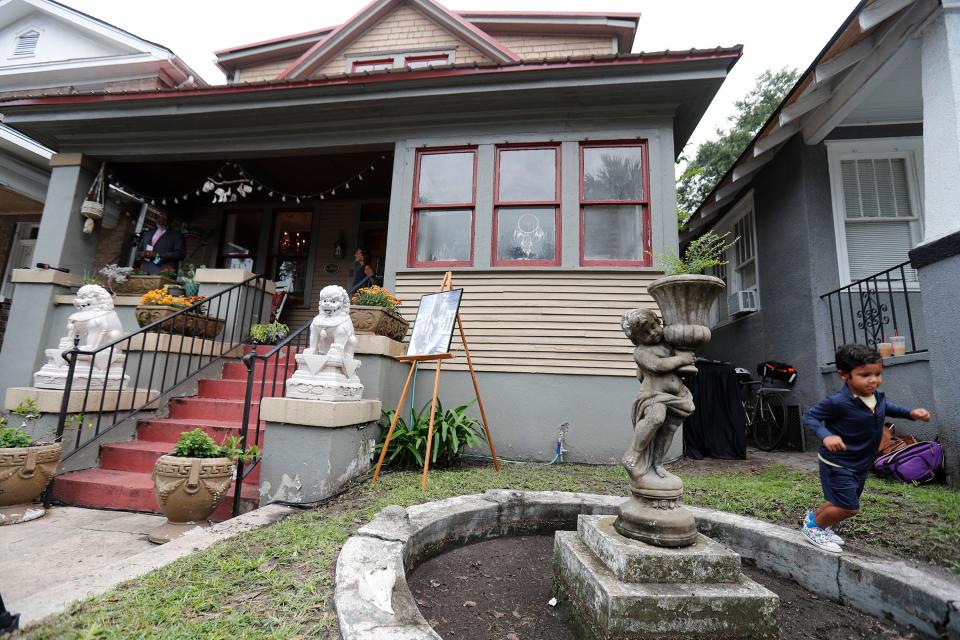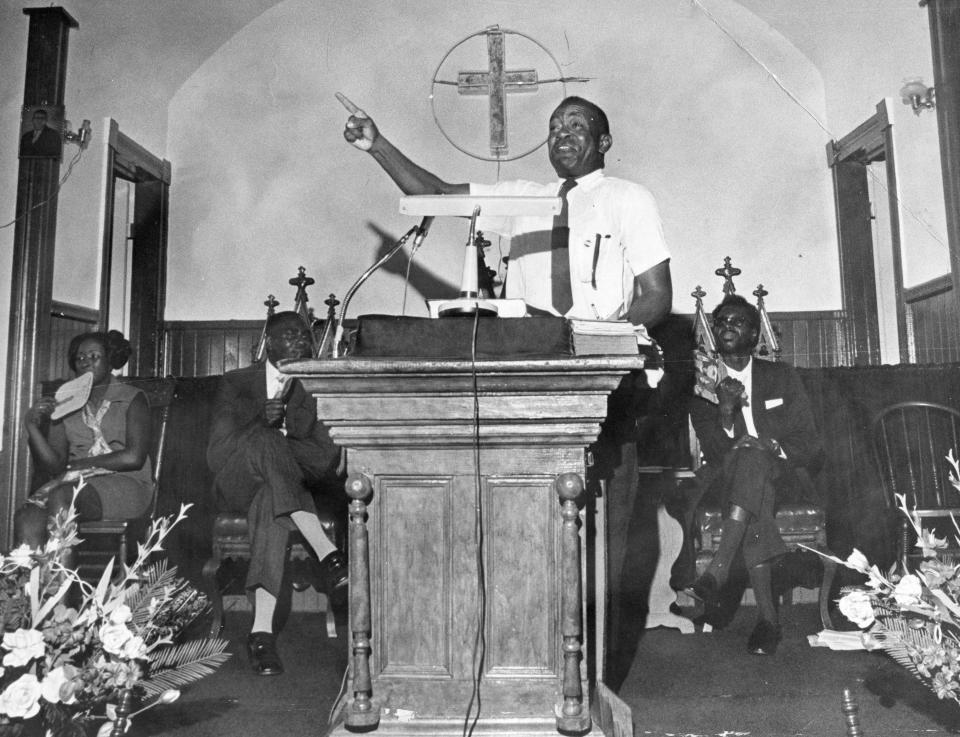Home of Savannah Civil Rights leader W.W. Law honored by Historic Savannah Foundation
Savannah Civil Rights leader W.W. Law kept such expansive, meticulous records that the second-floor of his mid-century craftsmen home was sagging from the weight of history.
"It's stuff that helped us — and is continuing to help us — to be able to manage history through the eyes of W.W. Law," Mayor Van Johnson said from the front steps of Law's home.
The W. Victory Drive house was home to Law from the 1950s until his death in 2002. It was restored by local Troy Williams, who now rents the home out. Williams worked with the Historic Savannah Foundation to honor the home of one of Savannah's patriarchs of Civil Rights with a plaque marking the year of the home's construction — 1936 — and noting it as the home to Law.
Historic Preservation: Historic Savannah Foundation closes on Kiah House Museum purchase
Preserving affordability: Historic Savannah to restore blighted properties to address housing shortage
First City Progress: Five housing, hotel developments coming to Savannah historic neighborhoods
"This is a long time overdue and we're so happy it's happening," said Sue Adler, president and CEO of HSF.

Westley Wallace Law was born in Savannah in 1923. His mentor was Ralph Mark Gilbert, who reignited Civil Rights Movement in Savannah by reviving the NAACP Chapter, which Law went on to lead from 1950 to 1976.
During his time as president, Law led protests, worked with city leaders to maintain non-violence throughout the Movement, and filed lawsuits to force Savannah-Chatham Public Schools to desegregate. A staunch proponent of passive resistance, Law participated n sit-ins at lunch counters, wade-ins at then-segregated Tybee Beach and led a boycott of Broughton Street, where white business owners enforced racial segregation.

"Savannah is so proud that W.W. Law was a crusader for justice and the civil rights of African Americans," Adler said Tuesday.
Vaughnette Goode-Walker, a tour leader who is re-opening the Ralph Mark Gilbert Civil Rights Museum on MLK Jr. Boulevard, said she hopes similar plaques will be placed along historic homes throughout Cuyler-Brownsville, a historically Black neighborhood where many prominent figures from Savannah's history were born and raised.
Wanda Lloyd: Three cheers for those who worked to save the Kiah House Museum
"If we went on 36th Street, where the Historic Savannah Foundation just purchased the Kiah House, and we walked up and down that block, It would be great to know who lived in those houses," Goode-Walker told the small crowd gathered on Law's former front lawn.

"But along that street, if we could put plaques up on every one of those historic homes, then people would have more pride in where they live."
Zoe covers growth and how it impacts communities in the Savannah area. Find her at znicholson@gannett.com, @zoenicholson_ on Twitter, and @zoenicholsonreporter on Instagram.
This article originally appeared on Savannah Morning News: Home of Savannah Civil Rights leader W.W. Law honored with plaque

